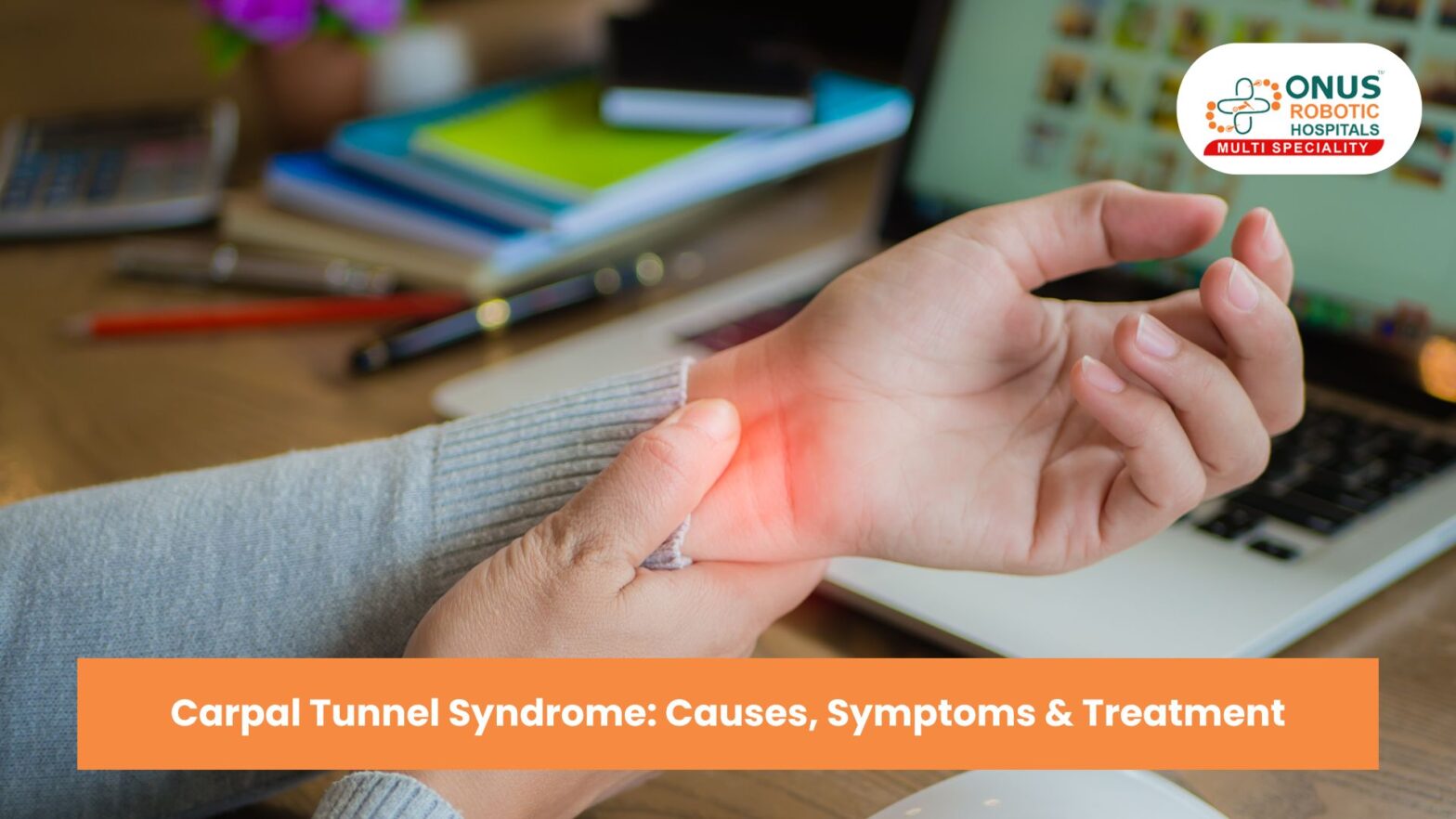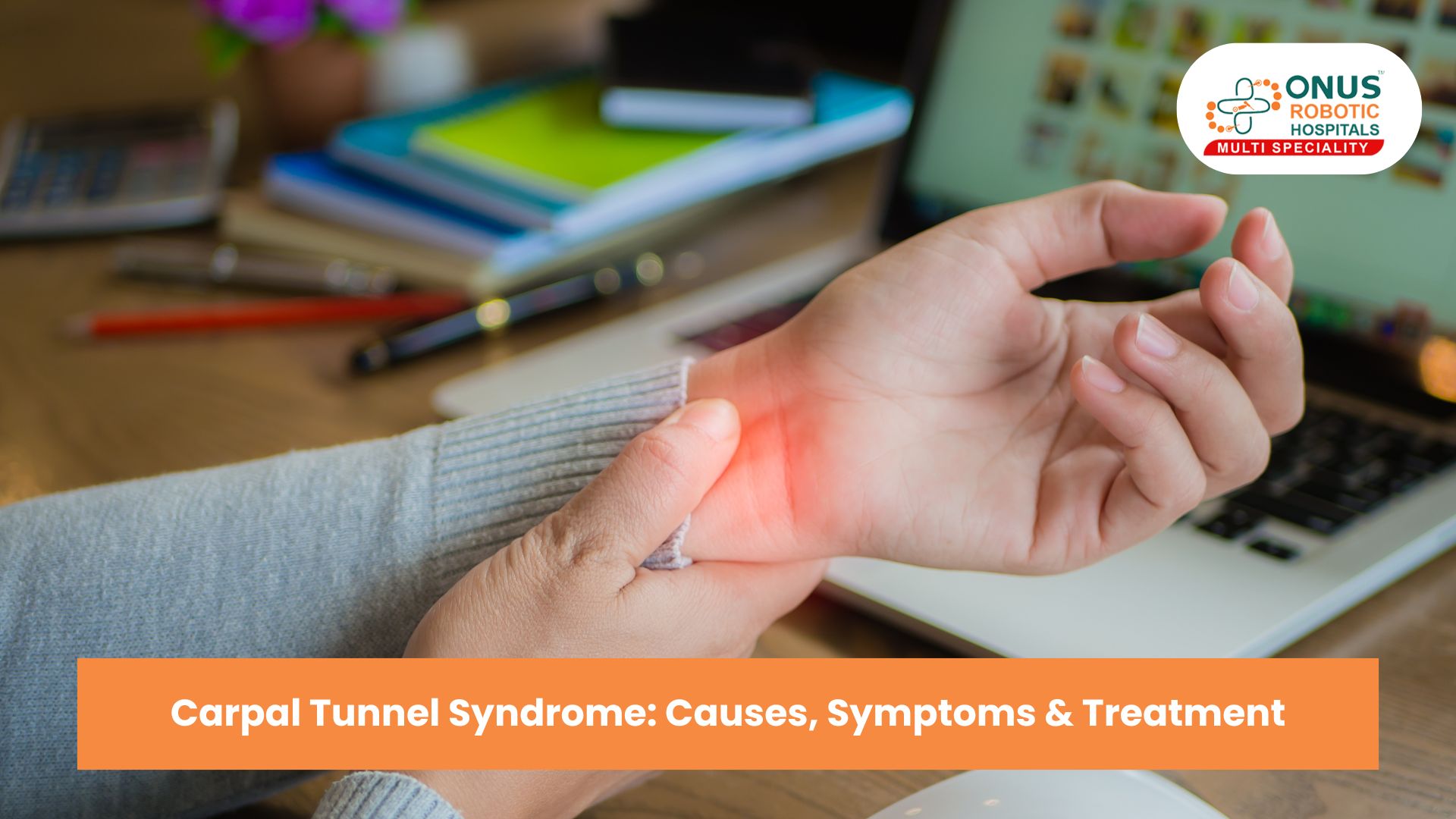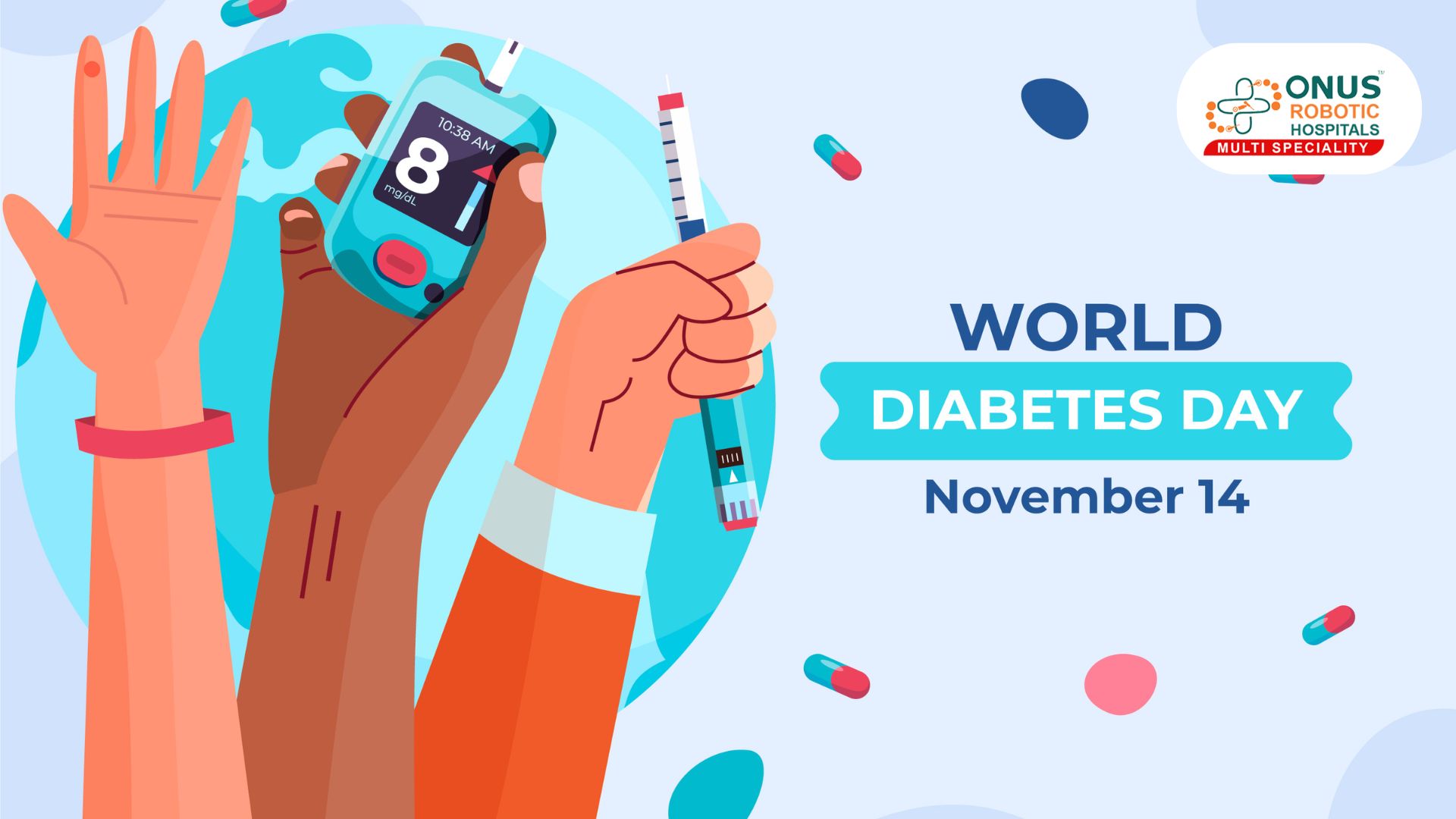Carpal Tunnel Syndrome: Causes, Symptoms & Treatment Explained
By Dr. Balaraju Naidu
Orthopedic & Joint Replacement Surgeon
ONUS Robotic Hospitals, Hyderabad
What is Carpal Tunnel Syndrome?
Your wrist has a small narrow passage called the Carpal Tunnel. A major nerve called the Median Nerve passes through this tunnel and controls:
- Thumb movement
- Sensation in the thumb, index, and middle fingers
- Grip strength
When this tunnel becomes tight or swollen, the nerve gets compressed, leading to pain, numbness, and tingling in the hand. This condition is known as Carpal Tunnel Syndrome (CTS).
Think of it like a wire getting squeezed inside a pipe — the signals become weak, causing discomfort.
Who Commonly Gets Carpal Tunnel Syndrome?
Carpal Tunnel is very common in people who use their hands repeatedly every day.
High-risk occupations:
- Office employees who use keyboard & mouse
- People with mobile overuse
- Tailors / Weavers / Textile workers
- Cooks / Housewives / Chefs
- Electricians / Carpenters / Drivers
- Shop workers lifting weights frequently
Common Causes
- Repetitive hand or wrist movements
- Mobile or keyboard overuse
- Incorrect wrist posture while sleeping
- Thyroid problems
- Diabetes
- Pregnancy-related swelling
- Arthritis
Symptoms to Notice
If you experience any of the following, it may be Carpal Tunnel Syndrome:
| Symptom | Description |
| Numbness / Tingling | Especially in thumb, index & middle finger |
| Pain at Night | Pain worsens during sleep |
| Weak Grip Strength | Difficulty holding objects |
| Electric Shock Sensation | Especially on waking up |
| Dropping Things Frequently | Due to loss of control |
Important: Symptoms usually start mild and gradually worsen. Early treatment gives best results.
What Happens If You Ignore It?
If not treated in time:
- The nerve may get permanently damaged
- Fingers become numb continuously
- Thumb muscles may shrink
- Grip becomes very weak
Early diagnosis helps prevent permanent damage.
How is Carpal Tunnel Syndrome Diagnosed?
At ONUS Robotic Hospitals, we perform:
- Physical Examination
- Special clinical tests (Tinel’s & Phalen’s Test)
- Nerve Conduction Study (NCS) – to check nerve function and severity
This helps decide whether the condition is mild, moderate, or severe.
Treatment Options
For Mild to Moderate Cases
✅ Wrist Splint (especially at night)
✅ Anti-inflammatory medications
✅ Vitamin B12 tablets for nerve nourishment
✅ Physiotherapy & Nerve-Gliding Exercises
For Severe Pain or Slow Response
✅ Local Steroid Injection to reduce inflammation quickly
When Symptoms Are Severe or Long-standing
✅ Carpal Tunnel Release Surgery
At ONUS Robotic Hospitals, we perform Minimally Invasive / Endoscopic / Laser-Assisted Release:
- Very small incision
- Minimal pain
- No major stitches
- Same-day discharge
- Faster recovery & return to work
Self-Care Tips & Prevention
- Avoid long continuous wrist activities
- Take 1-minute breaks every 20 minutes
- Maintain straight wrist position while typing
- Avoid sleeping on bent wrists
- Use a supportive wrist splint at night
When to Visit a Doctor?
Visit immediately if:
- Fingers are numb daily
- Night pain wakes you up
- You are dropping objects frequently
- Your hand feels weak
Early treatment prevents permanent nerve damage.
Consultation
If you or someone you know is experiencing these symptoms, consult us at:
Dr. Balaraju Naidu
Orthopedic & Joint Replacement Surgeon






